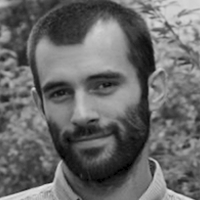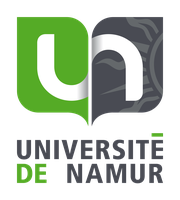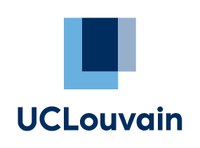IDnomics
The project
The IDnomics project aims to explore the interaction between the multiplicity of evolving social identities and public policies. Public policies may influence the salience of specific identities and their associated norms and roles, while identities may shape the outcomes of public policies. We aim to shed new light on two globally significant dimensions of identity: gender and religion. To do so, we leverage a range of theoretical and empirical approaches—including randomized control trials (RCTs), lab experiments, natural experiments, meta-analyses—to investigate the role of diverse and malleable identities in Economics in a wide variety of contexts. A key contribution of the project is the development of innovative measures of identities, drawing on recent advances in quantitative methods, including natural language processing and the use of very large datasets. To reflect its interdisciplinary nature, the project involves close collaborations with political scientists and computer scientists.
Work Package 1: Heterogeneity of Identity Norms and Public Interventions: the case of Gender Norms.
In recent decades, reducing gender gaps on the labour market has become a policy priority. While a large body of economic research examines the direct effects of such interventions, the role of gender norms in mediating these outcomes remains understudied, particularly with regard to potential backlash effects. This work package investigates how gender norms shape the impact of women-targeted interventions, and how policy design, especially varying program intensity, can amplify or mitigate these effects. The first objective is to theoretically investigate two potential outcomes of women-targeting interventions on intra-household dynamics: a “big push” on women's economic capacities could transform decision-making within households, incentivizing cooperation and ultimately improving household efficiency. Alternatively, such interventions could prompt husbands to strategically use violence to deteriorate women's perception of their economic prospects outside the household. To investigate these theoretical insights, we leverage the random assignment of two "big push" interventions in Benin and Egypt, to examine the intra-household impacts with special attention to backlash effects. To extend the external validity of our findings, we also conduct a meta-analysis by harmonizing microdata from multiple RCT studies evaluating women-targeted interventions. Using machine learning techniques, this large aggregated dataset enables us to assess the heterogeneous impacts of these policies on women’s well-being, depending on sample characteristics, gender norms, and economic opportunities.
Work Package 2: Multiple and Malleable Identities: Gender and Religion
This work package examines how multiple and evolving identities are shaped through interactions with religious and political movements, as well as through cultural representations in the media.
The first case study examines the construction of identity by analyzing the growing importance of Pentecostal Christianity in Africa, often referred to as the "new reformation" (Botha, 2007). New evidence suggests that Pentecostal religious practices promote a new identity along with specific beliefs and norms. We explore how this shift in identity norms reshapes economic behaviors and interacts with traditional identities in Ghana. A second research strand investigates whether both the extent and the stereotypical nature of women’s representation in films since the 1970s have shaped gender attitudes in the USA and India. A major contribution of this project is the creation of a unique dataset including all movies released in the USA since the 1970s, with detailed information on women's representation, box office success, and movie theatres locations. In addition, we study the effects of exposure to Bollywood films in India, leveraging the country's multiple identities—particularly caste and religious groups—to analyze how pre-existing gender norms mediate the impact of media exposure. The last research line exploits the rise of the Hindu-nationalist party (BJP) in India to investigate how ethnonationalist politics, and discrimination against Muslim people in particular, affect identity. Using high-quality individual-level panel data, we examine whether exposure to the BJP's ethnonationalist politics activates assimilation to the majority group or, conversely, strengthens attachment to a threatened minority identity, in a context characterized by multiple overlapping identity and frequent intergroup contact.
The Team
Guilhem Cassan |
Joseph Gomes |
Catherine Guirkinger |
Amma Panin |
William Pariente |
Full professor |
Associate professor |
Full professor |
Assistant professor |
Full professor |
 |
 |
 |
 |
 |
| Center for Research in Economic Development (CRED) at the Development Finance and Public Policies (DeFiPP) research institute (University of Namur); CEPREMAP; CEPR Research Affiliate: EUDN; CRED (DEFiPP); World Inequality Database; CAGE (Warwick) | IRES/LIDAM, UCLouvain; CEPR; Invited Researcher at J-PAL | Center for Research in Economic Development (CRED) at Development Finance and Public Policies (DeFiPP) research institue (University of Namur) | CEPR Research Affiliate; JPAL Invited Researcher; Fellow of the Pan African Scientific Research Council | IRES/LIDAM, UCLouvain; J-PAL affiliate |
Research fieldsDevelopment Economics, Political Economy and Economic History |
Research fieldsDevelopment Economics and Political Economy |
Research fieldsDevelopment Economics, Family Economics, Economic History |
Research fieldsDevelopment Economics, Behavioral Economics |
Research fieldsDevelopment Economics, Labor Economics and Policy Evaluation |
| Website | Website | Webiste | Website | Website |
|
Contact |
Contact |
Contact |
Contact |
Contact |
|
X:@GuilhemCassan bsky: @guilhemcassan.bsky.social |
bsky: @jfgomes.bsky.social | bsky: ammapanin.bsky.social |
Mathilde Sage |
Milan Van Steenvoort |
Chun Chee Kok |
Karine Moukadden |
Angel Pandit |
Post-doc |
Post-doc |
Post-doc |
Post-doc |
PhD student |
 |
 |
 |
 |
 |
| IRES/LIDAM, UCLouvain ; Center for Research in Economic Development (CRED) at Development Finance and Public Policies (DeFiPP) research institue (University of Namur) | Center for Research in Economic Development (CRED) at Development Finance and Public Policies (DeFiPP) research institue (University of Namur) | IRES/LIDAM, UCLouvain | IRES/LIDAM, UCLouvain | IRES/LIDAM, UCLouvain |
Research fieldsDevelopment Economics, Gender Economics and Policy Evaluation |
Research fieldsPolitical Economy, Population Economics, Migration, Identity |
Research fieldsPolitical Economy, Development Economics, Economic History |
Research fieldsDevelopment Economics, Gender Economics, Family Economics, Political Economy |
Research fieldsDevelopment Economics, Political Economy, Identity Economics |
| Website | Website | Webiste | Website | Website |
| Contact | Contact | Contact | Contact | Contact |
| milan.vansteenvoort@unamur.be | chun.kok@monash.edu | karine.moukaddem@univ-amu.fr | angel.pandit@uclouvain.be | |
| X:'@chuncheekok bsky: @chuncheekokecon.bsky.social |
X: @KarineMoukaddem | X: https://x.com/AngelPandit |
 |
|
IDnomics | A collaborative Research Action Project (ARC) - 1 September 2024 - 31 December 2029
 Funded by the Federation Wallonie-Bruxelles (FWB), ARC projects are Concerted Research Action projects that aim at developing university or inter-university centres of excellence in fundamental research axes and, where possible, that carry out basic and applied research in an integrated manner and aim to make economic and social use of research results. They are awarded based on academic excellence of the applicants, the added value of each research group to achieve goals of research project, complementary skills of research teams and the methodology of proposed research program. They typically last for 4 to 5 years. In case of inter-university project, each team is financely supported by its own institution.
Funded by the Federation Wallonie-Bruxelles (FWB), ARC projects are Concerted Research Action projects that aim at developing university or inter-university centres of excellence in fundamental research axes and, where possible, that carry out basic and applied research in an integrated manner and aim to make economic and social use of research results. They are awarded based on academic excellence of the applicants, the added value of each research group to achieve goals of research project, complementary skills of research teams and the methodology of proposed research program. They typically last for 4 to 5 years. In case of inter-university project, each team is financely supported by its own institution.
More information on the FWB website


